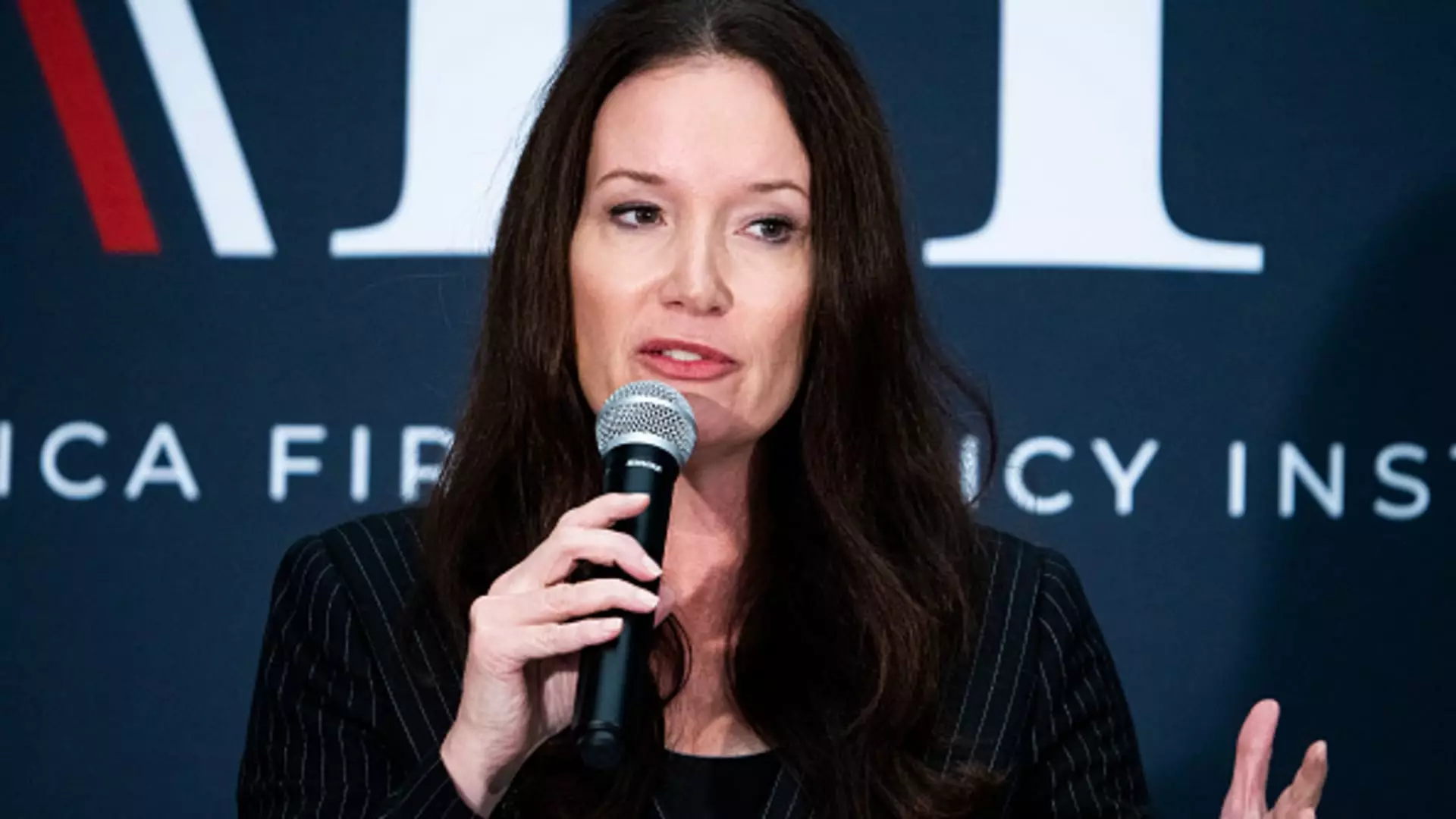In a move that has raised both eyebrows and expectations, President-elect Donald Trump has announced the nomination of Brooke Rollins as the next Secretary of Agriculture. A figure deeply rooted in conservative agricultural policy, Rollins comes to this pivotal role as the leader of the America First Policy Institute. Her selection reflects a broader agenda focused on enhancing the livelihoods of American farmers, a demographic Trump has repeatedly identified as the backbone of the nation’s economy.
If confirmed by the Senate, Rollins will take the helm of the U.S. Department of Agriculture (USDA), an extensive agency composed of approximately 100,000 employees and tasked with responsibilities spanning farm and nutrition program management, forestry oversight, food safety regulations, and rural economic development. The USDA’s 2024 budget of $437.2 billion underscores not only the department’s significance but also the immense responsibilities that will lie upon Rollins’ shoulders. Her focus on agricultural policies will be crucial in shaping consumption patterns across both urban and rural landscapes, which could have lasting implications on societal health and economic stability.
Rollins inherits a multifaceted agenda that includes negotiating international trade agreements and guiding domestic agricultural policies. Key among these responsibilities will be overseeing the intricate renegotiation of the United States-Mexico-Canada Agreement (USMCA), especially in response to ongoing tensions surrounding Mexico’s stance on genetically modified corn imports and Canada’s dairy quotas. Additionally, she will be tasked with evaluating clean fuel tax credits aimed at bolstering the biofuel sector, a crucial area as the industry pivots towards sustainable aviation fuels.
The economic implications of Rollins’ policies could resonate throughout the agricultural sector. Trump’s intention to explore sweeping tariffs could introduce uncertainty for many sectors reliant on agricultural exports, particularly amidst a backdrop of fluctuating international trade relations. For instance, how the administration negotiates trade deals will significantly influence American farmers’ ability to compete globally. Furthermore, her commitment to advocating for food self-sufficiency aligns with a growing concern about the nation’s food security. Farmers’ success directly impacts food prices, subsequent consumer choices, and ultimately the economic health of rural communities.
As the agriculture landscape in the United States continues to grapple with various challenges, including climate change and shifting consumer preferences, Rollins’ leadership could be both a protective mechanism for farmers and a catalyst for innovative policies. Trump’s assertion of her dedication to restoring agriculture-dependent small towns gives insight into a potential focus on rural development, yet it simultaneously raises questions about the ability to balance modernization with traditional farming practices.
The nomination of Brooke Rollins marks the beginning of a new chapter for American agriculture, reflecting a commitment to prioritizing farmer interests while navigating the complexities of domestic and international policies. The confirmation and eventual actions of the new Agriculture Secretary will be closely scrutinized as they will inevitably shape the future of food production and consumption in the United States.



Leave a Reply